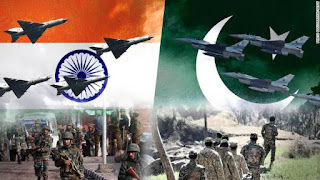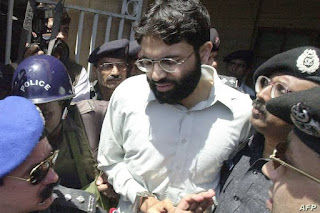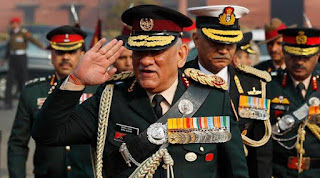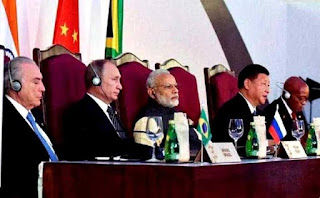
From past two months all are busy in getting as much information as they can on COVID-19, symptoms of COVID-19, tests and procedures and much other stuff. Take a break from it because this article sheds light on some interesting events that have happened in our neighboring countries i.e. Pakistan and Afghanistan, which got hidden under the COVID-19 tensions.
Incident no 1- Acquittal of terrorist Ahmed Omar Saeed Sheikh by Sindh High court in Pakistan.

In Dec,1999, a group of militants backed by ISIS and Taliban hijacked Indian Airlines flight (IC814) by landing it Afghanistan and demanded release of three militants who were in Indian custody. India ended the hostage crisis which lasted for seven days by agreeing to release them. The three militants released were Mushtaq Ahmed Zargar (Leader of Al-Umar Mujaheddin), Mulana Masood Azhar (Leader of Jaish-e-Mohammed, a terrorist organization which carried out 2001 parliament attack, 2008 Mumbai attacks, Pathankot and Pulwama attacks in 2016 & 2019), Ahmed Omar Saeed Sheikh. Ajit Doval, the present National Security Advisor of Prime minister Narendra Modi was then the head of Indian military operation wing. He termed release of militants as a “diplomatic failure”.
In January 2002, Ahmed with two other militants carried out an operation where he befriended with Daniel Pearl (the Wall Street Journal journalist), promised him to arrange an interview with Sheikh Mubarak Ali Gilani. In this process Ahmed with other militants beheaded Pearl.
In February 2002, Pakistani police arrested him in connection with the Pearl kidnapping. Later in July 2002, Ahmed along with the other two militants were convicted for kidnapping and murder and were given death penalty by Anti terrorism court. Ahmed appealed it in Sindh High court.
Recently in April 2020, after the hearings of the Sindh high court acquitted him of the charge of murder but held guilty of kidnapping and for this it gave 7 years jail sentence. But he was already in jail for past 18 years. Technically it means he can walk out of the jail.
Although Pakistan government has said it would appeal it in Supreme court, United States on the other hand has immediately expressed concern on his release and said it has noted Pakistan government’s statement.
How does this matter to India and the rest?
There are strong evidences which suggest Ahmed had a hand in 9/11 attacks, 2001 parliament attack and 2008 Mumbai attacks. Remember when he was arrested he was just 27 years old, now he is 46 which is not a big number in terms of age. If he comes out now he will do some other evil things.
Incident no 2: Pakistan demanding Afghanistan to hand over chief of ISIS’s “Khorasan Province’.

On 25 March 2020, suicide bombers and assailants armed with guns attacked the Gurdwara Har Rai Sahib (a Sikh shrine) in Kabul, Afghanistan. About 200 worshipers were reported to have been in the building, in which 25 Sikh worshipers were killed and leaving at least 8 wounded after an hour-long siege which ended in all assailants being killed by responding security forces. The Islamic extremist and militant organization Islamic State of Iraq and the Levant (ISIL) has claimed responsibility. The attack mastermind and chief of ISIS’s “Khorasan Province’ Abdullah Orakzai, alias Aslam Farooqi, was captured by the National Directorate of Security (NDS) on 4th April.
On 10th April, Pakistan has summoned Afghan envoy for extradition of Aslam Farooqi. “Since Aslam Farooqi was involved in anti-Pakistan activities in Afghanistan, he should be handed-over to Pakistan for further investigations,” the Ministry statement said. The statement is laughable. It’s like asking UK to extradite Mallya for doing money laundering in UK which is a crime as per Indian laws.
Why do Pakistan want Aslam Farooqi?

That’s because NDS has provided strong details which shows the attackers were related to Haqqani network (Talighan owned group) and has also provided credible details regarding the Aslam Farooqui’s background which goes back to Lashkar-e-Taiba (ISIS funded group).
Pakistan is pressing for Farooqi’s extradition, since he could prove to be a gold mine of information on who paid him to do what. Effectively, that information will tear apart the prevailing fallacy that the ISK (Kabul chapter) and the Lashkar are separate entities. In simple words, Pakistan is not just running the Taliban, but also a variety of IS or IS linked entities.
Incident no 3: The background of Kabul Gurdwara gunman.
As per NDA, the gunman was identified as Abu Khalid al-Hindi, an Indian citizen from Padne in the Kasargod district of Kerala state. Some reports revealed al-Hindi as a wanted person in a 2016 NIA case, and had previously worked as a shopkeeper in his native town. Indian intelligence agencies identified him as Mohammed Sajid Kuthirummal.
So what’s so intriguing about his background? Kerala is the answer.

ORF, a reputed research organization has shown data which says that around 60-70 pro-IS cases in India have been from Kerala.
“In 2016, seeing an increasing number of pro-IS cases in Kerala, specifically the northern belt of the state, law enforcement agencies launched ‘Operation Pigeon’. It was a “de-radicalization drive” aimed at timely and strategic intervention in an individual’s movement from ‘thought’ to ‘action’ of pro-IS ideology. According to data collected for the operation, Kerala’s Kannur district had the highest number of people identified for pro-IS inclinations, at 118 (not necessarily arrested, charged or prosecuted), followed by Malappuram (89) and Kasaragod (66).”, the research report stated. The report also explains the reasons for such increase by presenting the data.
ISIS reach in today’s world has increased enormously because of internet. The process of radicalizing youth through hatred speeches is something which is to be countered now. In Jan this year Chief of Defence Staff Gen Bipin Rawat in an address at the Raisina Dialogue said girls and boys as young as 10 and 12 years are being radicalized in the Valley which he described as a matter of concern.
Incident no 4: Trump administration repeatedly pressuring India for talks with Pakistan.

In an interview to The Hindu recently, Mr. Khalilzad said he favored India-Taliban talks. Last year in few instances Trump has said he would love be a negotiator between India and Pakistan. As there are elections in America in next 6 months and Trump having no big tool in pocket, he is trying desperately for getting one. Afghan peace deal, US-China trade war, Anti China stance during Covid-19 crisis, Trade deals with countries etc, nothing has quite clicked. The pandemic has further exploited the inability of Trump and his administration. The sheer negligence from his side has been in reports now. As all doors are closed one after the other India and Pakistan would get a great advertisement. But India on other hand has been rejecting US offer politely.
“It is for India to decide its role, but I do think engagement between India and all the key players in Afghanistan is appropriate given India’s regional and global position. India is an important force in Afghanistan and it would be appropriate for that [India-Taliban] engagement to take place,” said Khalilzad in the interview to Hindu.
India and Afghanistan has strained relationship due to Taliban. The above incidents are all linked to Taliban and ISIS which are supported by Pakistan.
Also, third person indulgence would benefit the person indulging rather than parties of the case.
What is India doing to counter these activities.

As I have mentioned earlier Chief of Defence Staff Gen Bipin Rawat address in Raisina Dialogue has said de-radicalizing youth should be India’s concern now.
Here are some excerpts he said,
You got to start looking at where the radicalisation is taking place. Who are the people involved in radicalising the people. It is happening in schools, universities, from religious places and sites, and then there are group of people who are spreading this.
You have to start isolating these people gradually and then start a counter radicalisation programme by identifying people who have been radicalised and to what degree.
You have to segregate them… Then look at those who have been completely radicalised. First target them and then also start looking at the future, like what we have seen in Kashmir.
Also, India is planning to make strong case at Financial Action Task Force (FATF) to get Pakistan blacklisted for terror financing by showing the reality.
Opinion:
In my view India should increase its Sub-conventional defence strategy tactics. That’s what even CDS Bipin Rawat has said. Our Special Forces operatives must be trained for specific regions and deployed in all areas of strategic interest to India for surveillance, perception management, intelligence, psychological operations, training and supporting friendly forces, blocking external support to insurgents/terrorists in India, increasing cybersecurity and tackling technology related issues, should control other country’s faultiness and retaliate in case specific countries continue to play rogue.

In diplomatic issues, India has been politely rejecting US negotiation talks with Pakistan but should also take cautious steps as that may result in trade differences. Also, if talks with Taliban happen then India’s first priority should be on countering terrorism i.e. India should demand the Taliban to hand over the officials responsible in helping ISIS in hijacking IC814 and should make an agreement where no terror related activities will happen on Afghan soil.
India should also increase its space in international organizations so that dealing in any adverse situations related with Pakistan can be handled smoothly without any damage to India’s image.
-ANJAN KUMAR
(Opinion expressed by the author is his personal. The Generalist Insights take no responsibility of the opinion expressed.)

Comments